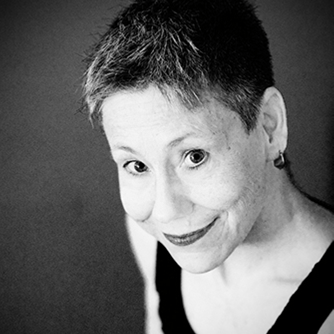Welcome to our ninth annual Queer issue. As some readers have asked (and as we ask ourselves): Why publish a Queer issue? Queer writers and topics certainly appear in our pages throughout the year, and even the appearance of restriction to one issue suggests marginalization, isolation, or “other”-ing. Yet every issue we publish is predicated on “others”: writers in foreign countries, producing work in non-English languages, with themes and settings largely unfamiliar to an English-language audience. And just as the writers in those issues have multiple identities—nationality, language, sex, sexual orientation, religion, genre—the contributors to our Queer issues produce narratives that elude facile compartmentalization. At a time in US history when every advancement in gender rights and protections seems to be countered with a reversal, we think these dispatches from gay writers around the world are more important than ever. From an almost forensic account of a French philosopher in 1950s Warsaw to a prose poem on the limitations of pronouns, the prose and poetry here capture the range and variety of international queer lives.
We’re delighted to introduce to our readers Mortada Gzar, the first openly gay Iraqi writer, now living in Seattle after receiving political asylum. In his “While He Was Sitting There,” set in an unnamed town during the US occupation of Iraq, a local college student occupies himself with a series of casual encounters at the gay bar frequented by American soldiers. Assuming various pseudonyms and playing into exoticizing stereotypes, he hooks up with a soldier who drives home the side effects of war.
Remigiusz Ryziński’s Foucault in Warsaw reconstructs the year in the late 1950s when the philosopher-provocateur served as the head of the French Institute at the University of Warsaw. Openly gay and a foreigner, Foucault was an immediate target of the secret police, who put him under surveillance, tailed him and his new friends around underground Warsaw, and eventually arranged a honeytrap operation in hopes of expelling him from the country. Ryziński combines police records, interviews with Foucault’s Warsaw circle, and historical research; the result—which reads like a Stasi file crossed with a gossip column—provides a unique portrait of gay life in a virtually undocumented time and place.
Set in an apocalyptic future, Choi Jin-young’s “Dori and Jina” depicts romance blooming in the face of death. Jina, a young Korean woman fleeing a fatal epidemic with what remains of her extended family, befriends the independent Dori and impulsively invites her to join their group. As the narrative switches from Dori’s perspective to Jina’s, we sense that at least one sort of safety is at hand.
Cuba’s Abilio Estévez contributes a dreamy coming-of-age story with “The Lagoon.” On his sixteenth birthday, the narrator wades into the murky, weed-choked waters of the titular location. Daydreaming about his older friend, he takes a step in the wrong direction. Estevez’s depiction of the terrain and the characters’ deep connection to it suggest that this misstep, and what follows, reflects the intertwining of human fate with the natural world.
The Lebanese writer Sahar Mandour’s Mina depicts a relationship rocked by external forces. On the eve of her departure for the Cannes Film Festival, a famous actress is outed in the Beiruti press. Enraged and panicked, she talks through options with her more equable lover; their decision is mutual and irreversible.
Vietnamese poet Nhã Thuyên’s “Nihilism” howls with frustration at both language and what it represents. Uncurbed by either pretense or punctuation, this headlong monologue of nothingness first rejects gendered pronouns, then declares the narrator’s intention to destroy the loved one as well. It’s a compelling portrait of absence and meaning.
Thailand’s Prabda Yoon, who made his WWB debut in our October 2017 issue, returns with the tale of a transgender woman at the end of her rope. Fed up with disappointments and limitations, the fabulous ‘Mantique (“My real name is Ro-man-tique, darling”) decides to end it all. The result is as fantastic as ‘Mantique herself.
In contrast to the florid world of ‘Mantique, Tina Åmodt’s “The Light Doesn’t Come Here” takes place in the hushed, monochromatic atmosphere of a Nordic winter. A bickering Norwegian lesbian couple moves to an isolated, long-vacant house. One of the women spent summers there as a child, and her happy memories are quickly undercut by the extent of the house’s deterioration. As the women face the realities of their decision, it’s clear that the chill that descends is caused by more than the weather.
We hope you’ll enjoy these varied portraits of queer lives around the world. As we open this month traditionally devoted to saluting gay life, and present our own annual observation, we continue to celebrate our fifteenth anniversary and the rich and varied array of voices, queer and otherwise, that we’ve brought into English through the years.
© 2018 by Susan Harris. All rights reserved.









